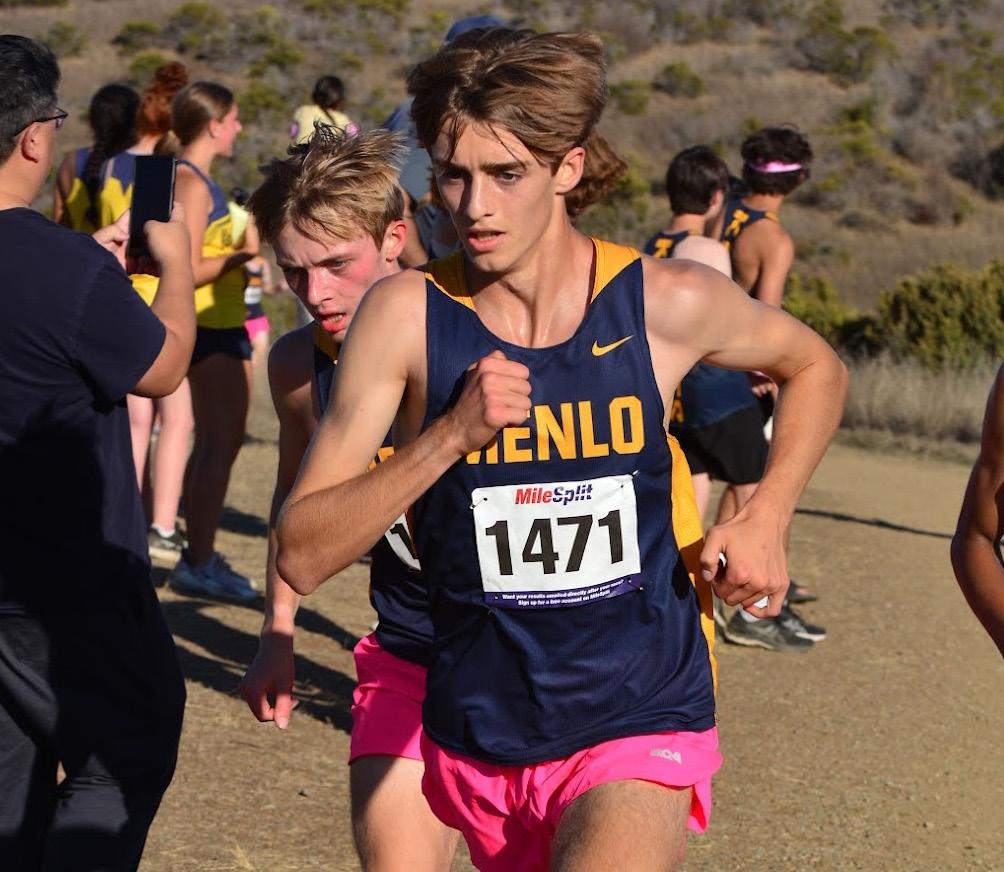
2 minute read
Senior Students Take to the Polls to Vote in the Midterm Elections
by ABIGAIL BECKER
Many 18-year-old Menlo seniors were able to vote for the first time in the 2022 U.S. midterm elections. On Nov. 8, they took to the polls or mailed in their ballots to vote for the California State Governor, various positions within the California state government, new members of the House of Representatives and one new senator. They also voted on seven ballot measures, including Proposition 1, which codifies the right to an abortion in the California Constitution, and Propositions 26 and 27, which seek to legalize sports betting.
Advertisement
Some eligible seniors were excited about the prospect of voting. “I want my voice to be represented,” senior Riley Jensen said.
Jensen believes that voting as an 18-yearold can empower youth voices. “I think it’s important because we’re the younger generation, so it’s important to get younger views.”
Other seniors found voting for the first time anticlimactic.
“You’re kind of told it’s a big deal, but then the ballot comes in and you look at it and it’s kind of people that you don’t really align with all that much. And then you’re just like, ‘Oh, I guess I have to just pick one,’” senior Montse Contreras said.
A U.S. census determined that voter turnout in the 2020 presidential election was lowest among the ages 18 to 24 at 51.4% and highest among those ages 65 to 74 at 76%. According to an article from The New York Times, one of the prevailing reasons why young people don’t vote is because the acts of registering and casting a ballot are complex, especially for first time voters.
Students at Menlo have felt the same pressure when it comes to managing logistics. “[I feel] a little overwhelmed,” senior Finn Byrne said. Byrne is planning on voting in-person at a voting center. “It’s going to be hard to register, and I have to find a polling place and I have to wait in the line.”
Seniors also struggled when it came to researching candidates and relevant issues. Senior Reese Weiden, for example, found that she had limited time to spend on politics in light of approaching college application deadlines. “If I had more time, I would educate myself thoroughly, but I’m just so busy right now,” Weiden said. “I’m going to read the voter guide, but, honestly, other than that, I’m not going to do a ton of in-depth research.”
Weiden, Byrne, Jensen and senior Lucas Vogel have used their parents as resources. “It’ll definitely be a learning experience,” Vogel said. “If I go to [the] polls my first time, my parents will definitely be coming with me.”
Menlo does not host any programs targeted specifically toward educating first-time student voters. However, in mid-October, Upper School Director and history teacher John Schafer presented to a group of around 50 students and staff members about the November elections and pressing partisan matters. “That’s one of the theories on how democracy works: informed citizens participate,” Schafer said. “The more informed you are, the more power you have.”
While not all Menlo students are eligible to vote, Schafer encourages them to engage with political processes and stay up to date on current events regardless of age. “Understanding the complexities and the tradeoffs and the interconnection of issues is a really important thinking skill that I hope the school promotes,” Schafer said. “All of our students should be following the news, be civically engaged, paying attention and understanding the issues.”









